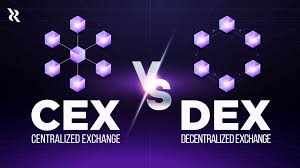Let’s find out how app development in Android is different from that in iOS. It’s important to note that Burning Glass predicts an increasing demand for iOS and Android in the years ahead, particularly within jobs such as software developer/engineer. Is that based on the assumption that iOS and Android will increasingly spread from mobile devices such as smartphones and tablets to other hardware, including Internet of Things devices? Again, that’s a difficult question to answer with any certainty. What’s certain, though, is that knowing both Android and iOS skills will cover you when it comes to mobile-development jobs. When this happens, it’s a sign that it’s time to build another version of your web application structure for the other platform.
- The development team might need more time to adjust the app’s features for particular devices.
- Apple’s closed ecosystem means you’re developing for a few standardized devices and operating systems.
- In a nutshell, Android is a promising operating system to choose as a long-term investment.
- Based research firm that reviews and rates thousands of business to business firms based on quality of service and other things.
- Cross-platform development allows you to create one app for both iOS and Android at once, with minor tweaks to make it fit each platform.
And we may not even consider differences in the programming languages. Fragmentation in iOS is minimal, which makes it a lot easier for developers to create applications. They can tweak apps for only so many resolutions and screen sizes and don’t need to worry about how their apps will perform on thousands of devices from different manufacturers. So, when it comes to Android vs iOS development time, iOS is clearly the winner. While these two factors are important, you should pay more attention to users who actively engage with your app. However, the cost of iOS and Android app development also depends on many other factors — for example, you need to consider the cost of third-party services and market publishing fees.
Categorization Systems
If you’re struggling to choose between developing your app first for iOS or Android, I advise you to think about your business goals. The difference in the development process is not so great, and it’s likely that eventually you’ll develop an app for both platforms. According to Statista, there are currently around 3.5 billion smartphone users in the world. Most of them use apps on a daily basis, and the demand for mobile apps is higher than ever. Businesses need a mobile presence to reach smartphone users, and all consumers expect every platform to have a mobile app. If you have made a decision to create a mobile game, then you probably know that mobile traffic currently rules the world.
However, if you need to choose one platform first, here are some tips. Operating system fragmentation with Android makes Android development costs higher than iOS. Devices that run Android have many different screen sizes and resolutions; moreover, manufacturers often build their own platforms on top of Android, such as Xiaomi’s MIUI. On the other hand, the Java and Kotlin languages aren’t very complex, and this makes development faster.
Why are iPhones better than androids 2020?
More RAM and Processing Power
iPhones generally do not have as much RAM as Android phones due to their app/system optimization. … While the app/system optimization may not be as good as Apple’s closed source system, the higher computing power makes Android phones much more capable machines for a greater number of tasks.
Integration of payment systems and specific administrative panels requires increased attention, while Android development is more flexible and customizable. Apple Store, however, will test your app for every possible bug and validation before approving it to publish on the platform. It is a long, time-consuming process and also costs more than what you have to pay for publishing on Play Store. Android OS is being used by a range of different kinds of devices with different build and development needs. IOS is used only by Apple devices and follows the same build for all apps. Because of the limited type and number of devices, iOS development is easier as compared to the development of Android apps.
Android And Ios: Owning The Mobile Market Share
After comparing some leading features of iOS and Android development, on one hand iOS may seem like a better option for a beginner without much prior development experience. But if you do have prior desktop or web development experience, I would recommend learning Android development. So, Android gets points here over iOS because it gives you the freedom to develop Android applications on any operating system. In a nutshell, iOS has an edge over Android in regards to available development tools. The image shows a detailed difference of features between Android and iOS development.
Google offerssimilar development and training courses for Android. If you’re interested in developing smartphone and tablet apps, you know that the mobile device industry is essentially a duopoly, split between Apple’s iOS and Google Android. If you’re totally new to mobile, you’re probably wondering whether you should focus the bulk of your learning energies on one platform or the other. Learn 5 other app monetization models you can use to make money with your business app. If app monetization is one of your goals, there are some key platform differences to be aware of.
Does Apple use Python?
The top programming languages at Apple (by job volume) are topped by Python by a significant margin, followed by C++, Java, Objective-C, Swift, Perl (!), and JavaScript. … If you’re interested in learning Python yourself, begin with Python.org, which offers a handy beginner’s guide.
Here you can’t find any, which is used by more than 50% of Android device owners. And it means that you again have to consider this difference while building your app. We’ve discussed all the differences between iOS and Android, and now you want to know which platform to choose for your app. I advise you to eventually offer your app on both platforms, as it will significantly expand your potential audience.
For example, to publish to the Play Store, you need to pay a one-time $25 fee. To do the same on the Apple App Store, you need to pay $99 annually. Again, iOS wins if you compare iOS vs Android development costs. Let’s start with comparing the two platforms from the point of view of a business owner.
For App Store, a subscription model is active as well – developers can enable both auto-renewable and non-renewable subscriptions. Both platforms take 15% of a developer’s revenue instead of a standard 30% commission common for other monetization models. This decision leads mobile app enthusiasts to believe that in-app subscriptions will surpass other monetization models by 2021.
That said, the Apple App Store has stricter rules and quality expectations and a longer review process, so it may take longer for apps to be approved. Your app may even be rejected if it’s not up to Apple’s standards. Apple users tend to be more engaged with their devices and spend more on apps.
The technical side plays an important role when choosing a platform. Having understood the specifics of development for each of them, you can decide which one is more preferable for you in terms of cost and simplicity. Get in touch with one of our expert app developers to discuss your project requirements or get an Android/iOS app developed by us. Even though the number of Android apps and users is higher, Apple App store generates much more revenue than its competitor. In 2016, Google Play earned $3.3B in revenue while App Store made a revenue of $5.4B, which is quite huge.
A few months ago, Google Play came up with a new way to drive monetization forth. Using the ‘Rewarded Products’ feature, developers will be able to increase the app’s revenue by having visitors watch sponsored videos in exchange for in-game currency. It takes nothing but a few clicks to add a rewarded product to an app – a developer can do it using the Google Play Billing Library.
The interfaces of Google Play Market and App Store are similar – both have a home page with application listings, filters that help users to navigate and search for apps. Needless to say, it’s up to a designer to choose a look-and-feel for the app. However, there are certain system-specific differences that influence the design of iOS and Android apps.
Google’s guidelines are called Material Design, and Apple’s guidelines are called Human Interface Design. Both iOS and Android have their own testing tools, but Apple’s TestFlight is faster than Google’s emulator. However, the Android emulator is more functional and realistic.
Those who prefer XCode like it for easy setup, but bigger projects make the IDE too complicated. And Android Studio fans like it for an advanced code editor and layout designer, though sometimes it consumes too much memory. Android Studio helps quickly generate multiple versions of your app for various devices and offers a flexible Gradle-based build system. Xcode, on the other hand, has a decent source editor and assistant editor. Another major difference between iOS and Android development lies in the integrated environment. Two systems are different from one another not just on the development level but even in terms of design and marketing strategy.




